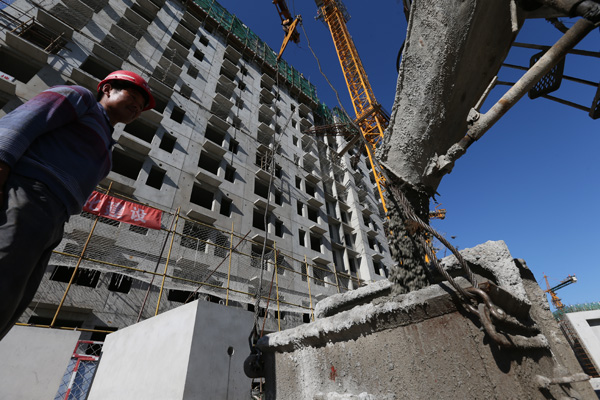Big believer in real estate now a skeptic due to sluggish sales
Updated: 2014-10-07 05:47
By Hu Yuanyuan(China Daily)
|
|||||||||
Most local and regional governments in China have sufficient resources to weather the impact of a property market downturn, a report by Standard & Poor's says.
"We believe most Chinese local and regional governments can tide over a 50 percent decline in property-related revenue over the next year or so," said Standard & Poor's credit analyst Liang Zhong. "We estimate that property-related revenue accounted for roughly 20 percent of their total revenue in 2013."
The report said that some of the measures the local and regional governments can take to deal with the problem are cutting non-core spending, strengthening the collection of revenue, using their sizable fiscal reserves or selling some assets. However, the benefits from these are likely to be short term.
"We believe reforms such as public-private partnerships and implementing residentialproperty taxes can provide a long-term solution to reducing local and regional governments' vulnerability to property market downturns," Zhong said.
Despite sluggishness in themass residential market, sales in the high-end market in Beijing and Shanghai remain good.
"Demand for high-end residential real estate has remained relatively stable in Shanghai," said Carlby Xie, head of research at global real estate consultancy Colliers International. "As a result, the transaction volume of high-end projects has risen, in contrast to a decline in mass-market housing."
Between January and August, sales in Shanghai's housing market totaled 5.42 million square meters, down about 30 percent year-on-year. In the same period, sales of high-end residential properties (defined as 40,000 yuan per sq m or above) rose 5.1 percent year-on-year to 964,000 sq m, Colliers said.
The contours of Beijing's market were similar. A high-end project developed by Poly Real Estate Group, for instance, sold out more than 100 apartments valued 2.5 billion yuan on the first day it was open for sale in September, said Niu Yi, the project's marketing chief. The unit price of the project was reported to be about 90,000 yuan per sq m.
Shen Linan, assistant president of Shenzhen-listed Thai Hot Group, a real estate company that specializes in developing upmarket residential projects, said the demand for luxury apartments andvillas valued between 10 million and 20 million yuan is strong in Beijing and sales have been brisk this year.
Despite the sluggish residential market, Thai Hot's net profit rose 5.95 percent to 424 million yuan in the first half of the year, thanks to its commitments to high-end projects in Beijing and Shanghai.
"We will maintain our sales project of 25 billion yuan for 2014," Shen said.
For Chen Haoyu, deputy-marketing chief of Oceanwide Holdings' Beijing branch, high-end project housing buyers are more rational and are not so readily influenced by changes in the market.
"Price is not the only factor they are considering," Chen said. "What they care about most is the product itself. Given the experience of the past few years, the annual sales of luxury apartments or villas valued 30 million to 40 million yuan is almost at the same level despite the ups and downs in the market."
The Shenzhen-listed Oceanwide is about to launch the second phase of a luxury project near Chaoyang Park in Beijing, with the unit sale price ranging from 100,000 yuan to 12,000 yuan per square meter.
"It is normal to see a difference in the performance of different types of properties and different cities as the real estate sector is market driven," Qin Hong, director of the policy research center at theMinistry of Housing and Urban-Rural Development, told a recent forum organized by the China Index Academy. "And the trend will continue in the coming years."
With more property developers offering bigger discounts to stimulate sales and more local governments easing home purchase restrictions, sales in the second half of the year will be better than in the first, said Sang Yufeng, an analyst with real estate agency Century 21.
So far, of the 46 cities that had limits on home purchases, only six, including the four biggest cities of Beijing, Shanghai, Guangzhou and Shenzhen, have kept those restrictions. "As the chances of a relaxation in mortgage policies rise, we believe buying opportunities are on their way," Sang said.
A document jointly issued by the People's Bank of China and the China Banking Regulatory Commission on Sept 30 says those who have fully repaid mortgages on previously bought homes will be treated as first-time homebuyers when it comes to financing for new residences.
Contact the writer at huyuanyuan@chinadaily.com.cn
- Billionaire Hong Kong builders raise cash for real estate purchases
- Ways to promote real estate sales
- Beware of the Role of Real Estate in Urbanization
- Top 10 regions that rely most on real estate
- Improving Real Estate Regulatory Policies
- China's real estate bubbles
- Opinion on real estate market fluctuations
- Adjustment trend and policy in real estate market
- Current real estate market situation and its regulatory policies
- Lending rule easing to boost property sales
- Another city lifts property restrictions
- Chinese home buyers boost Australian property market
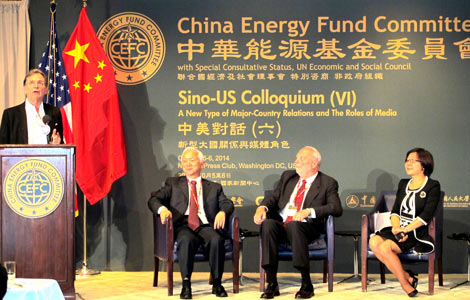
 Cultural bridge key for China, US
Cultural bridge key for China, US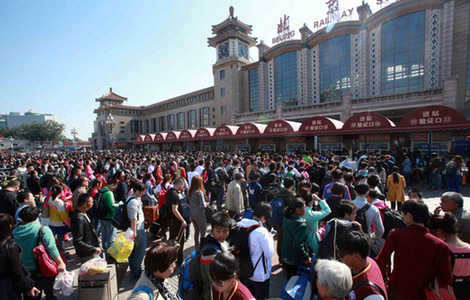
 Traffic embraces busiest day for holiday week
Traffic embraces busiest day for holiday week
 Chinese tourists flock to US for Golden Week
Chinese tourists flock to US for Golden Week
 Chinese insurer buys NYC's Waldorf Astoria Hotel
Chinese insurer buys NYC's Waldorf Astoria Hotel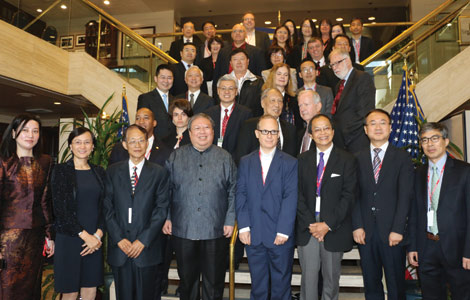
 China, US seek media common ground
China, US seek media common ground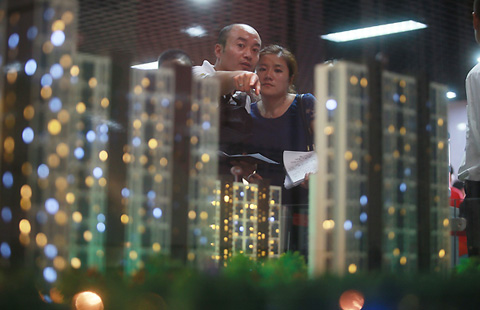
 Big believer in real estate now a skeptic due to sluggish sales
Big believer in real estate now a skeptic due to sluggish sales
 Back to work
Back to work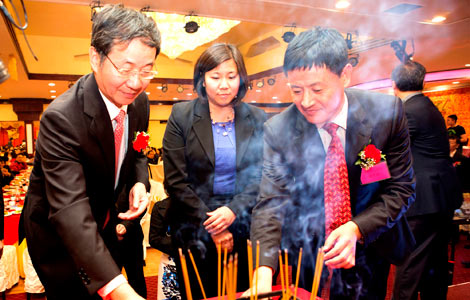
 Confucius rite in NY
Confucius rite in NY
Most Viewed
Editor's Picks

|

|

|

|

|

|
Today's Top News
HK govt to hold meeting with Occupy students
Chinese insurer buys NYC's Waldorf hotel
World Bank sees slower rise in China economy
6.6-magnitude quake hits Yunnan
Chinese actress Li Bingbing calls for action on climate change
HK occupiers urged to reflect on campaign
Big believer in real estate now a skeptic due to sluggish sales
WB cuts China growth forecast
US Weekly

|

|
